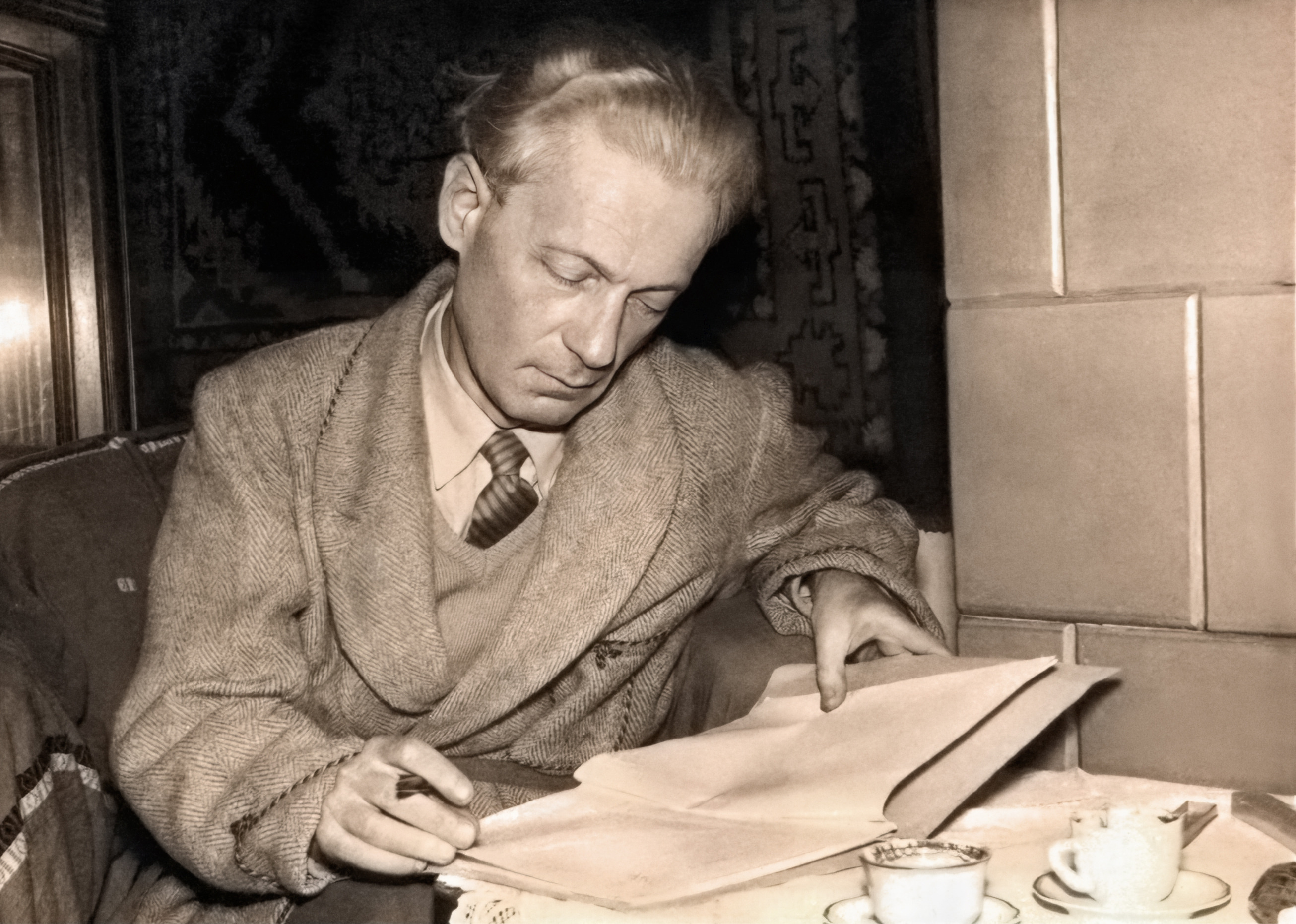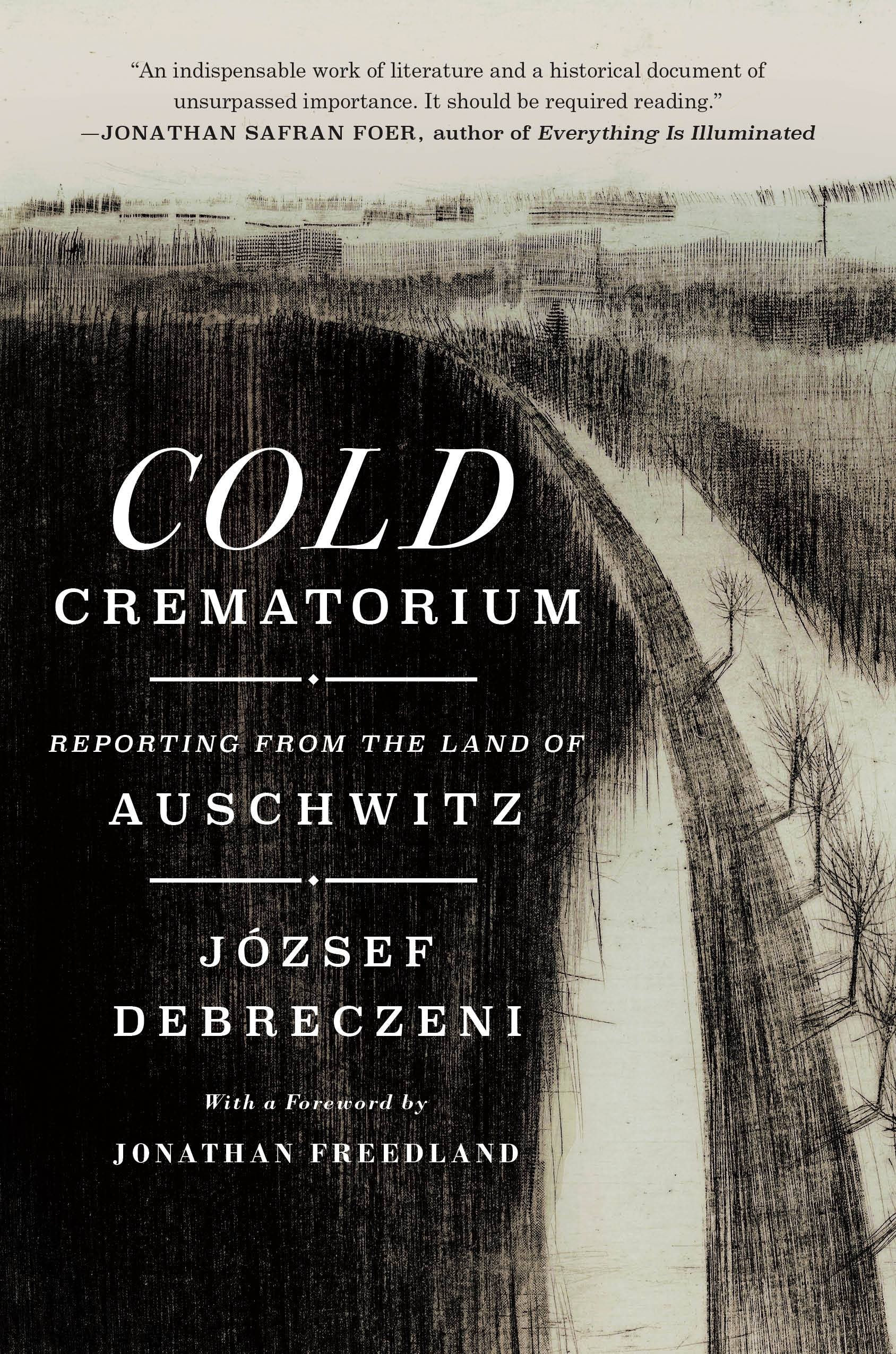
A seasoned reporter’s eye makes this Holocaust memoir unforgettable
Should readers today be interested in a hitherto little-known Holocaust memoir first published almost 75 years ago? After the unforgettable literary testimonies of Elie Wiesel, Primo Levi, Charlotte Delbo and Imre Kertész, along with many other less-famous works by survivors of Nazi camps, and after the thousands of oral testimonies collected by the Shoah Foundation and other institutions, not to mention the dozens of documentary films featuring survivors (including “Shoah,” Claude Lanzmann’s nine-hour masterpiece), do we still have anything to learn about the “land of Auschwitz” from those who were there?
Yes, we do. József Debreczeni’s “Cold Crematorium,” published in Hungarian in Yugoslavia in 1950 and only now translated into English and several other languages, still has the power to shock as well as enlighten us. Debreczeni, a poet and journalist who lived in the Vojvodina region of Yugoslavia, was among the more than 400,000 Hungarian Jews deported to Auschwitz in the spring of 1944, after Hitler invaded the country and sent Adolf Eichmann to Budapest. Eichmann, with his usual efficiency and the help of the Hungarian government, managed in three months to empty almost the whole country of its Jewish population. (The Jews of Budapest were spared from systematic deportation only because Hungarian leader Miklós Horthy finally stopped collaborating in the process, in early July 1944. Some Jews in Budapest were deported anyway, and many thousands died a few months later at the hands of Hungary’s infamous Arrow Cross Party.)

At the time of his deportation, Debreczeni, unlike many other authors of survivor testimonies, was already a seasoned journalist, nearly 40 years old. He was therefore able not only to describe his personal experience in gripping detail but also to cast a detached, analytic light on it. In this regard he can be compared to Levi, who, although younger by more than a decade, used his scientific training as a chemist to similar effect.
Debreczeni recounts his imprisonment in three different camps in the area around Auschwitz over the course of about one year, each more horrific than the last. Dörnhau, the final camp where he was interned, from November 1944 to May 1945, gives the book its title. Dörnhau was a designated hospital camp, where sick and dying prisoners were sent in the last months of the war, after the Nazis dismantled the gas chambers and crematoria at Auschwitz. Aware of the approaching Soviet army, the Nazis wanted to hide evidence of their crimes. Although I’ve read and written much about the Holocaust, I had never heard of Dörnhau before reading this book. Men died there in great numbers from starvation and illness, including a typhus epidemic toward the end, but they were not gassed and burned. That’s why some inmates called the camp a “cold crematorium.”
Debreczeni’s writing style, rendered in Paul Olchváry’s excellent translation, often matches that coldness, and is all the more effective for it. Here is what he writes about the arrival of a new inmate who briefly shared his bunk at Dörnhau:
Having a new neighbor isn’t a surprise. So far I’ve had to report eight corpses in the mornings, which has meant — among other things — that I’ve passed eight nights pressed up against a cooling cadaver. You can get used to anything. Close quarters of this sort have meant being there as every dying man soils himself in his final moments, and sitting up a corpse to get extra food.
That new bunkmate, like the eight others, died before the night was over. Debreczeni gives us a detailed description of him while he was alive: young, wearing underpants and a shirt, a “jaw-dropping rarity” in the camp, and clutching an enamel mug whose exchange value in the camp is two portions of bread, making it a “sign of indisputable prosperity.” The young man told Debreczeni he was a rabbi, but “there’s nothing rabbi-like about him anymore, nothing human.”
To be human is to have a name, Debreczeni often reminds us. The Nazis dehumanized inmates in their camps by assigning them numbers, obliterating their names. We never know the dying rabbi’s name, but Debreczeni wrote striking portraits of many other inmates whom he does name, for good or ill. There are the two Weiszes, for example, who counted among the “privileged” inmates in Debreczeni’s first camp. One Weisz was a “kapo” — a prisoner designated by the Nazis to lord it over fellow deportees in exchange for better food and living conditions — whom Debreczeni describes as “brutishly cruel,” tormenting and even killing prisoners in his work detail. The other Weisz was also part of the “camp aristocracy,” in charge of a supply warehouse, but he was a “white raven among the many little gods,” sometimes throwing a bone to his less-fortunate brethren. One of Debreczeni’s recurring themes is that even among the Hungarian Jewish deportees, many differences existed. One of the Nazis’ diabolical insights, he repeatedly insists, was that the “best slave driver is a slave accorded a privileged position.” But good people could be found even among those in power, Debreczeni writes. He owed his survival from typhus to the care of a camp doctor named Farkas.
So yes, we have many things to learn by reading this memoir risen from decades of obscurity. My one quibble is that, despite Jonathan Freedland’s perceptive foreword and the afterword by Debreczeni’s American nephew, Alexander Bruner (who informs us that Debreczeni was a pen name for his uncle, József Bruner), the reader is given little information about Debreczeni’s life outside of his experiences during the war (I even had to look up his birth and death dates: 1905-1978), not to mention the life of this book. Reprinted twice in Serbia after its initial publication there, it was not published in Hungary until this year — even though the Holocaust, which was a taboo subject in Stalinist times, has been a topic of great interest in that country for several decades. I would have loved to know more about the author and his work, before and after the camps. But that too is a tribute to this important book.
Susan Rubin Suleiman is professor emerita of comparative literature at Harvard. Her memoir “Daughter of History” was a finalist for a National Jewish Book Award.
Cold Crematorium
Reporting From the Land of Auschwitz
By József Debreczeni; translated from Hungarian by Paul Olchváry
St. Martin’s. 244 pp. $28
News Related-
Russian court extends detention of Wall Street Journal reporter Gershkovich until end of January
-
Russian court extends detention of Wall Street Journal reporter Evan Gershkovich, arrested on espionage charges
-
Israel's economy recovered from previous wars with Hamas, but this one might go longer, hit harder
-
Stock market today: Asian shares mixed ahead of US consumer confidence and price data
-
EXCLUSIVE: ‘Sister Wives' star Christine Brown says her kids' happy marriages inspired her leave Kody Brown
-
NBA fans roast Clippers for losing to Nuggets without Jokic, Murray, Gordon
-
Panthers-Senators brawl ends in 10-minute penalty for all players on ice
-
CNBC Daily Open: Is record Black Friday sales spike a false dawn?
-
Freed Israeli hostage describes deteriorating conditions while being held by Hamas
-
High stakes and glitz mark the vote in Paris for the 2030 World Expo host
-
Biden’s unworkable nursing rule will harm seniors
-
Jalen Hurts: We did what we needed to do when it mattered the most
-
LeBron James takes NBA all-time minutes lead in career-worst loss
-
Vikings' Kevin O'Connell to evaluate Josh Dobbs, path forward at QB
